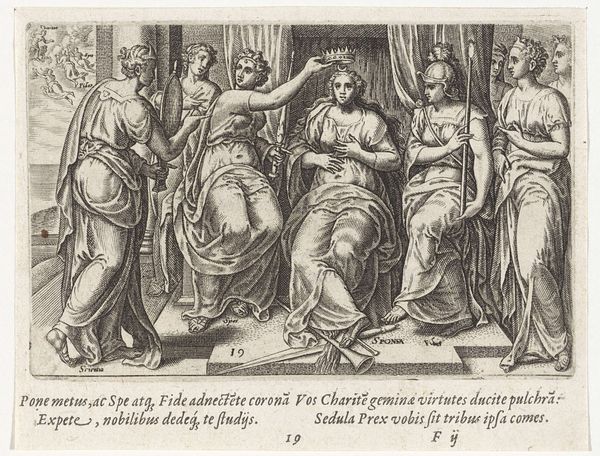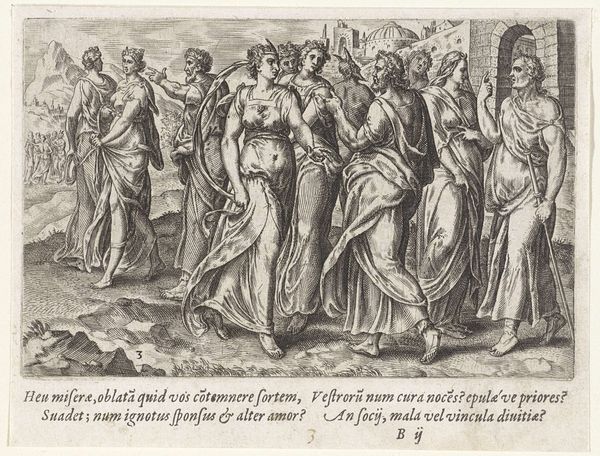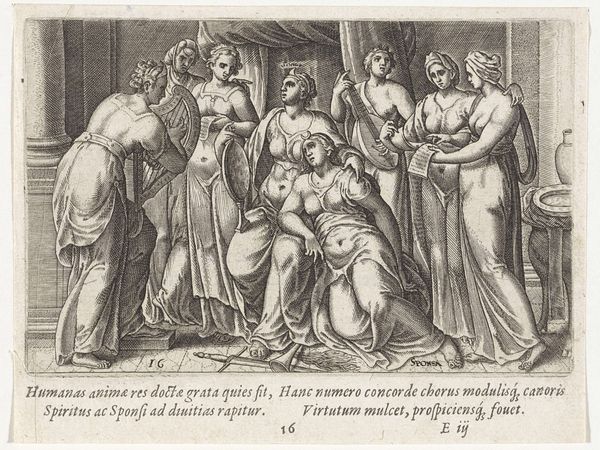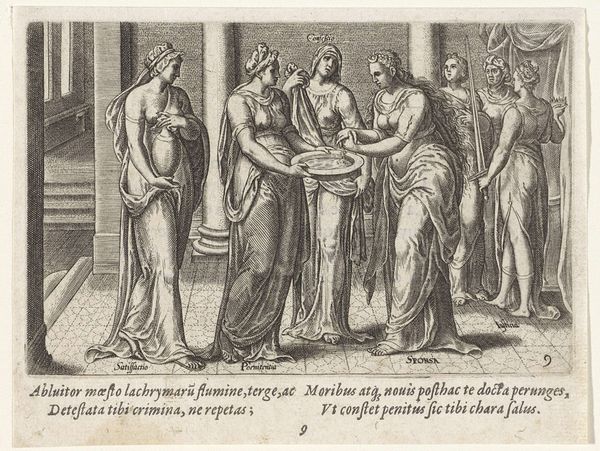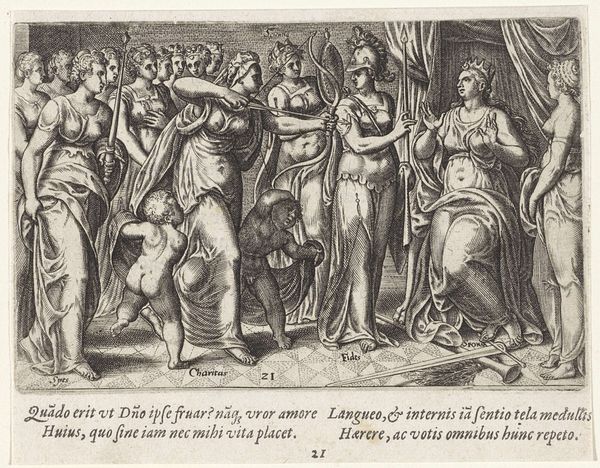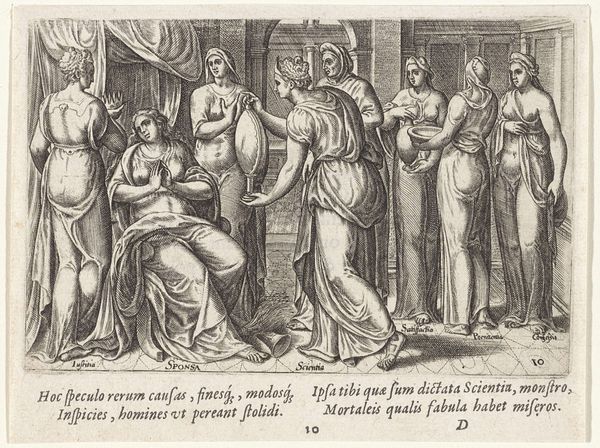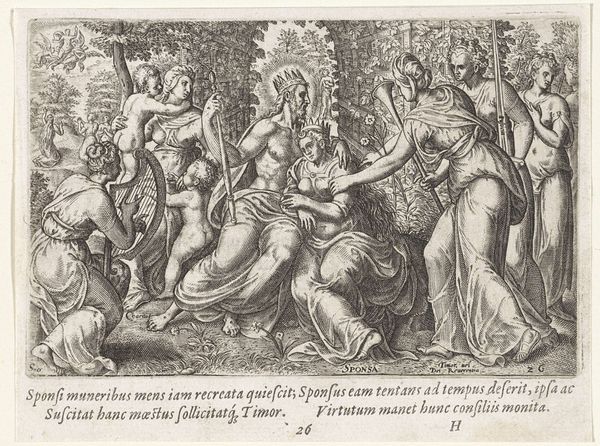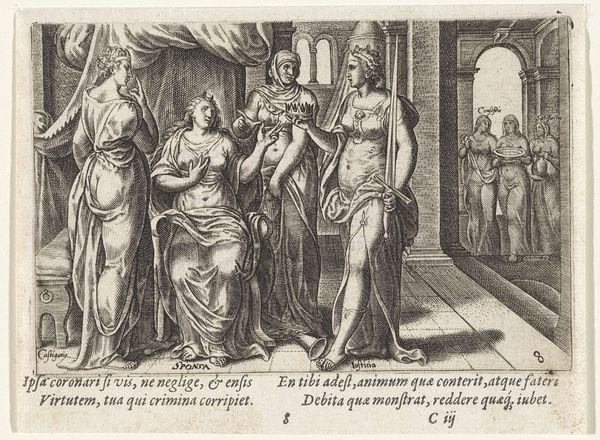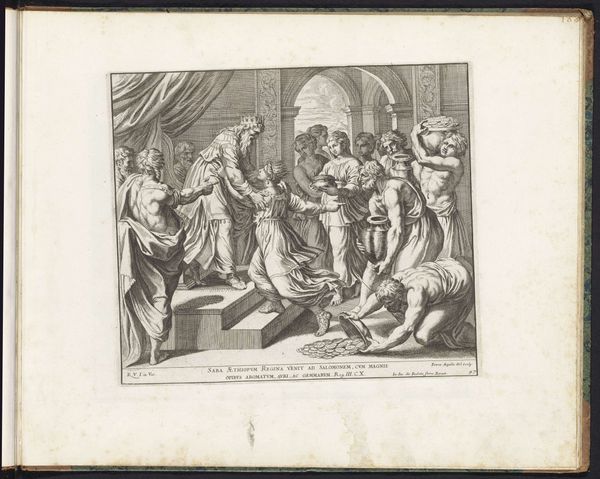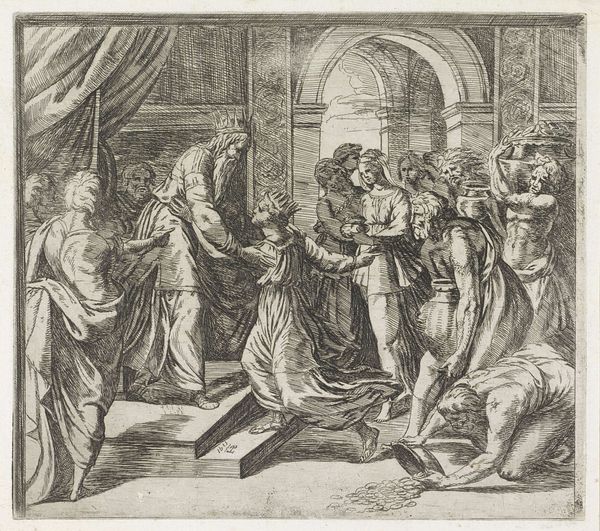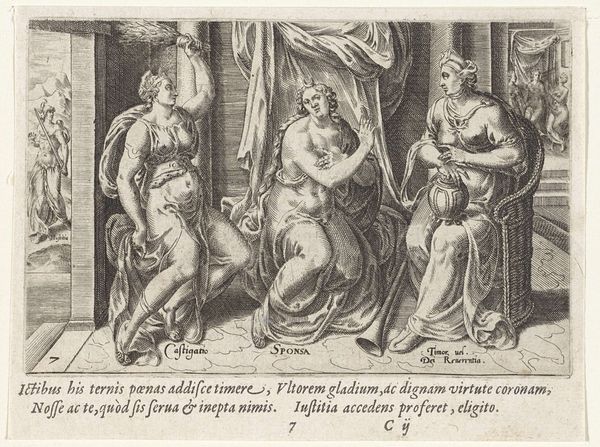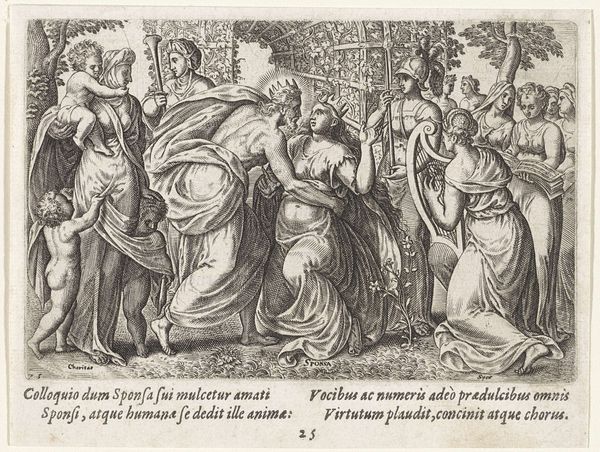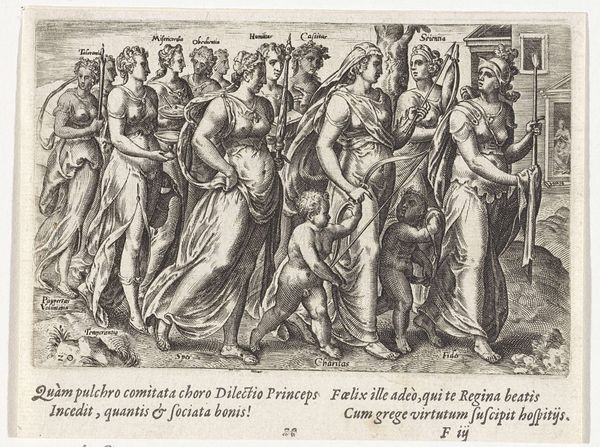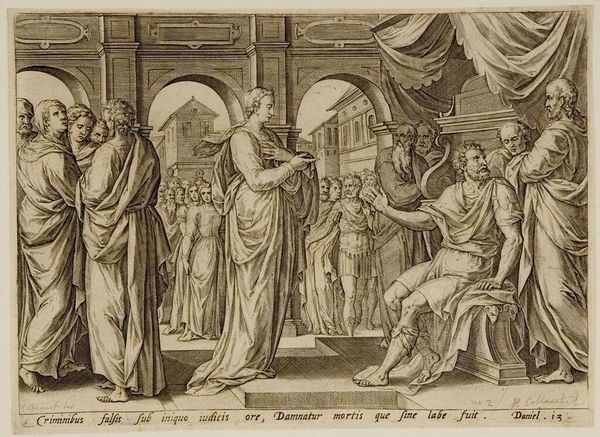
print, engraving
#
allegory
# print
#
mannerism
#
history-painting
#
engraving
Dimensions: height 92 mm, width 140 mm
Copyright: Rijks Museum: Open Domain
This engraving, made by Wierix around the turn of the 17th century, allegorically represents a bride receiving Faith and Hope. Look closely, and you'll see how the image creates meaning through visual codes and cultural references. Made in the Netherlands during a period of intense religious and political upheaval, this print reflects the era’s complex relationship between faith, marriage, and societal expectations. The bride, Sponsa, stands at the center, being presented with the virtues of Fides and Spes. These figures, along with others in attendance, are rendered in classical garb, a common visual language of the time, that lent gravitas to moral lessons. The engraving prompts us to ask: What was the public role of art in the Netherlands at this time? Was Wierix’s image designed to reinforce social norms around marriage? Understanding the context surrounding such imagery requires us to delve into the period’s religious literature, social histories, and the biographies of artists and their patrons. The meaning of art, we see, is contingent on the social and institutional contexts in which it’s made.
Comments
No comments
Be the first to comment and join the conversation on the ultimate creative platform.
